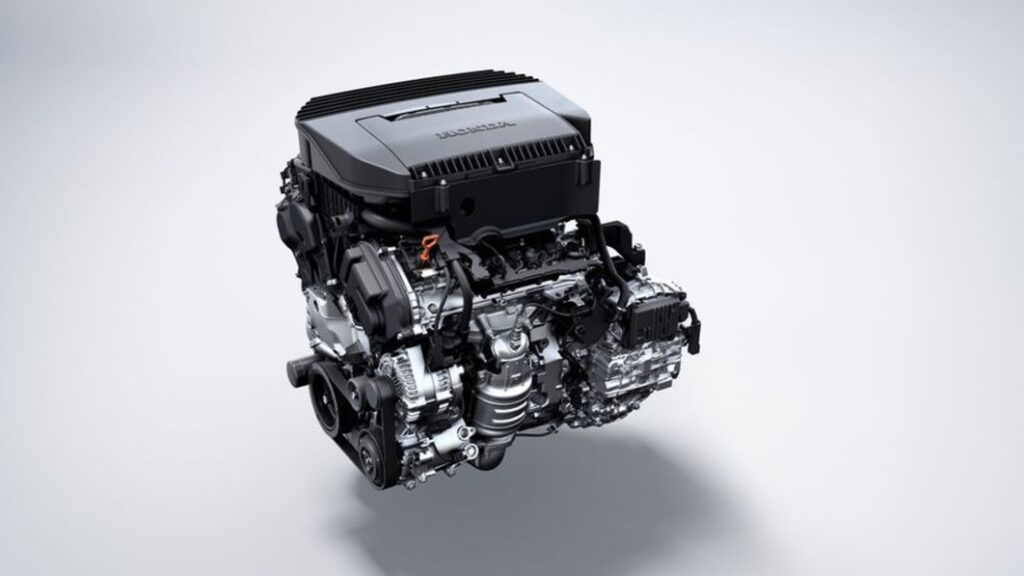2023 Honda Pilot brings back the DOHC V6 for cleaner emissions

With a new Honda Pilot comes a new version of Honda’s evergreen V6. This time around, the 3.5-liter motor adds dual overhead cams even as it dispenses with Honda’s signature VTEC system. There’s a slight power boost as well, but nothing drivers will likely notice.
Notably, as Car and Driver points out, the engine marks Honda’s first naturally aspirated DOHC V6 since the original NSX. However, that glorious motor was augmented with VTEC, Honda’s game-changing variable valve timing system. VTEC intake camshafts had two profiles, one for low-rpm efficiency and one for performance that would activate at a certain rpm. It all worked mechanically, using oil pressure to switch profiles. Unlike in the NSX, however, the Pilot’s V6, referred to internally by engine code J35Y8, does not have VTEC.
VTEC was cutting edge Formula 1 tech in 1989, but here it’s been replaced with cam phasers that continuously change timing for both intake and exhaust valves. From a driver’s standpoint, this means power will be delivered more smoothly without that trademark VTEC jolt. Power grows a bit, up 5 horses to 285, while torque stays the same 262 pound-feet. Maximum output of both arrive a few hundred rpm higher.
The heads come courtesy of the TLX Type S (also, the MDX Type S). They’ve been engineered with the cam bearings caps cast into the valve covers to reduce the overall height of the engine by 1.2 inches.
Combined with a new direct-injection system with pressure cranked up by 50%, fuel delivery is more controlled. The system can inject three squirts of gasoline per combustion cycle. The result is a lowering of NOx and particulates by 40% to 50%, according to Honda, which gives the V6 an SULEV30 rating. That means it’s considered a super-ultra-low-emission light-duty vehicle by 2030 standards.
A cleaner burn rather than outright performance was Honda’s goal. As such, expect this V6 to proliferate throughout Honda’s large SUVs until the electric Hondas arrive.



